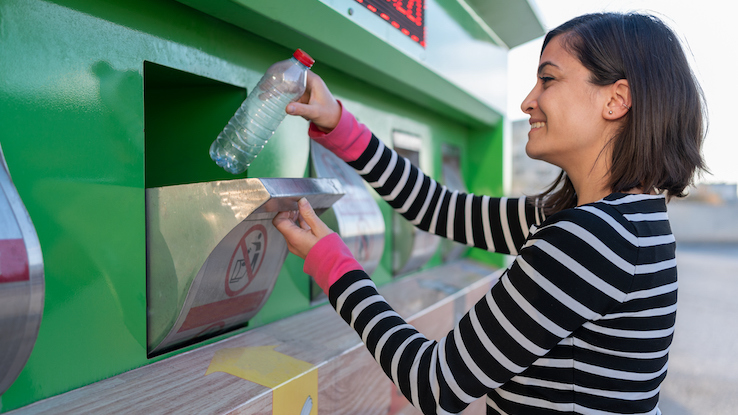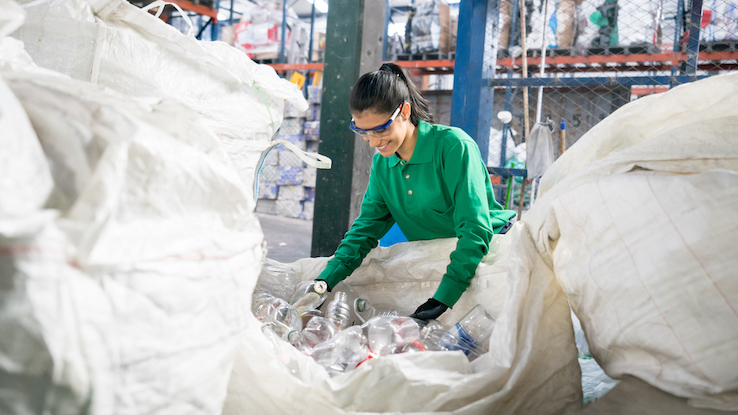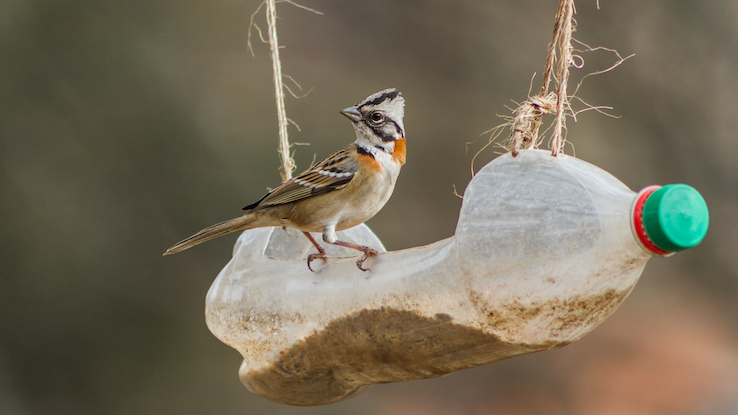Plastic Bottle Recycling: Everything You Need to Know

At one time, plastic was a very hot commodity in the U.S. Plastic items like utensils and bottles were (and still can be) very convenient to use. However, the long-term effects of plastic use have been studied and seen across the world. Plastic bottles are regularly filling up landfills and releasing harmful chemicals into the environment.
There are ways to help with the problems behind plastic. Some Americans are avoiding plastic altogether and are looking into alternative options that are more environmentally friendly. Millions of Americans have begun to recycle plastic bottles to help convert them into useful items instead of just tossing them. Here’s why recycling plastic bottles is important and how you can recycle at home.
Recycling Truly Benefits People and the Environment
Did you know that it can take 700 years for one plastic bottle to decay? It’s no wonder that just throwing away plastic bottles is having a negative impact on landfills, plants, animals and people. Choosing to recycle, on the other hand, can have a very positive impact.
Recycling bottles helps to reserve space in landfills for other waste that can’t be recycled. Recycling also helps reduce the number of plastic bottles thrown out in the streets. The production of plastic bottles requires natural resources like water, oil, natural gas and coal. So recycling plastic bottles can help to preserve these precious resources. This production also releases greenhouse gasses, including carbon dioxide, into the atmosphere, a contributing factor to global warming. However, the process of recycling plastic bottles ultimately requires less energy and fossil fuel, and that means less greenhouse gas emissions.
The recycling industry, which is valued at $200 billion, also has a positive impact on the economy. There are currently over 1 million people employed in recycling at some level, and the industry continues to grow. Plus, it helps to create resources for U.S. manufacturing, which can be valuable for export to other countries. Another bonus to recycling? It can help you save money. Instead of continuing to purchase brand new plastic bottles, if you merely washed and reused them, you could save some money. You can even take a bag of plastic bottles to a recycling center. You won’t get paid much, but a few extra dollars in your pocket is always nice.

While you are certainly playing your part in recycling plastic and other materials around your home, another general part of recycling is buying products made from recycled content. This helps to close the recycling loop. When you are out shopping at your local grocery store, look for products that contain recycled content. Some of the most common products include cereal boxes, paper towels, books, detergent bottles, newspapers and aluminum cans. Plastic bottles have also been reused to create other plastic bottles and products.
How to Recycle Your Plastic Bottles
So how do you go about recycling bottles? There are several different options for recyclables around your community, including curbside collection, drop-off centers, and deposit or refund programs. Some recycling programs may not ask that you rinse your plastic bottles or jugs, but you should. Also, crush the bottles to remove air inside of them. This helps save space at the processing facility. It’s best not to bag your plastic bottles as this prevents proper processing of the bottles. You should also remove any plastic outer wrappers. These can be recycled with plastic bags in some stores. Another helpful tip is that you can keep the caps on to be recycled along with the bottles.
You should also be mindful of whether or not an item is recyclable. Plastic bottles that can be recycled have symbols with Resin Identification Codes on them to identify the type of plastic used to make them. Check the code against your local collection center or garbage company’s information to see if they accept the type of plastic you have. Plastic numbers 1 ad 2 are the most common types and are almost always accepted by recycling centers.

It is important to note that compostable plastics are not acceptable for recycling and can actually contaminate the recycling process. Your community may have a pick-up program for compostable plastics. If not, contact your garbage/recycling company or local government officials who should have more information on how to dispose of them.
Use Your Creativity to Reuse Plastic Bottles Right at Home
While sending your plastic bottles off to a recycling center is great, there are many unique ways that you can reuse them at home. One of the most common reuses for a plastic water bottle is as a bird feeder. All you need is the bottle, wire or string, birdseed, and a pair of scissors. There are simple tutorials on how to make them, and the birds in your area will certainly be happy. Just make sure to keep them stocked if you do decide to go this route.
Other simple uses include using laundry detergent bottles as a watering can for plants. Soda liters can be cut in half to house small plants or be turned into cute piggy banks for kids. Bigger plastic bottles for things like oil and juice can be cleaned and reused for food storage in your home. There are all kinds of ideas floating around on the internet that will allow you to use your plastic bottles for something else in your house.





